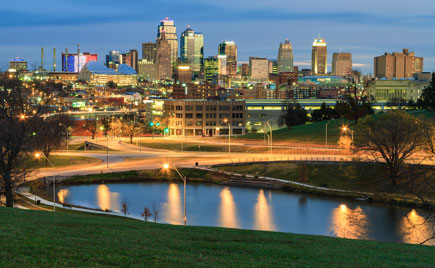Empowering cities

The political divisions in our country feel starker and more firmly entrenched than they have in decades. How can our next president begin to heal the country’s wounds and unify our divided society?
They will need to start by establishing the conditions for a more vibrant, inclusive economy, and providing communities with the tools they need to come together and spur local progress. The best way to do this will be to devolve power out of Washington and radically increase the flexibility and discretion of cities and metropolitan areas—the vibrant, diverse communities that drive our country forward in the first place.
As I write in my recent piece for the Miller Center’s First Year Project, the moment is ripe for reforms of this sort. While dysfunction has afflicted the federal government and state capitals for years, cities and metropolitan areas have been forging pragmatic, innovative, ambitious solutions in nearly every area of national importance; finding new and better ways to train workers, educate children, finance major infrastructure projects, and develop affordable housing, among many others. This burst of activity has amounted to what I call the New American Localism, and it has occurred with limited help from Washington or the states. That said, federal reforms could vastly strengthen New Localism, bolstering our economy and bringing our communities together in the process. Our next president would be wise to take advantage of this opportunity.
There is ample precedent for our next president to seek a re-sort of relationships and responsibilities within the country upon entering office. Lyndon B. Johnson, Richard Nixon, and Ronald Reagan, for example, all saw remaking federalism as the key to bringing their respective governing visions to reality. Johnson’s “Great Society” vaulted Washington’s influence over states and localities to new heights by vastly expanding federal grantmaking. Nixon’s “New Federalism” reduced the prescriptiveness of federal grants, provided revenues to subnational governments through General Revenue Sharing, and centralized a great number of regulatory functions. Reagan dramatically reduced federal support to states and localities, streamlined federal intergovernmental support, and loosened a range of federal regulations.
While the boldness of Johnson, Nixon, and Reagan is to be admired, this moment calls for a different approach. Traditional federalist reforms have focused almost exclusively on the relationship between the federal government and the states. Strengthening the new localist dynamic that has taken root in our nation will require the federal government to bypass the states and interact directly with cities and metropolitan areas and to do so in a way that recognizes that our communities are powered by networks of private, public and civic institutions and leaders rather than by government alone.
Empowering cities should appeal to our next president regardless of party. There is an emerging bipartisan consensus on the importance of devolving power from Washington, and our next President would be politically savvy to capitalize on this nascent dynamic. Republicans have long advocated for greater local control, and a push for greater devolution would return the party to its conservative roots as envisioned by Presidents Nixon, Reagan, and George H. W. Bush. Democrats, long seen as the centralizing party, have begun to recognize the benefits of a more realpolitik approach—empowering local communities would be a potent way to advance a number of progressive causes as Democrats control the vast majority of our largest cities and urban counties.
The time for the federal government to fully empower cities has arrived. In the next installment of this two-part series, I’ll describe the precise reforms the federal government can make to fully unleash the potential of our nation’s metropolitan areas.